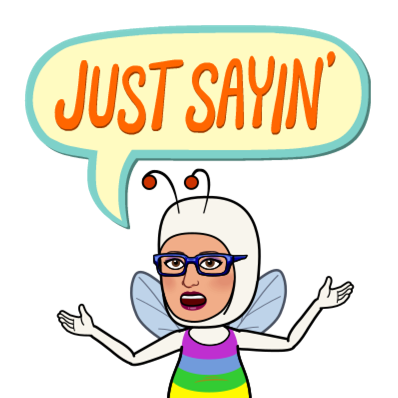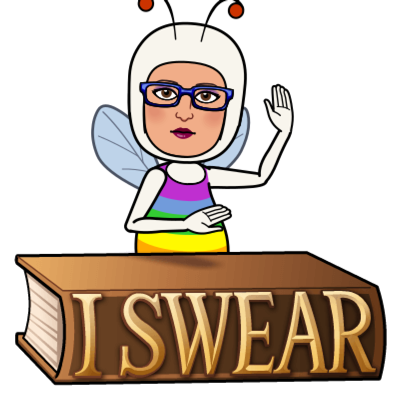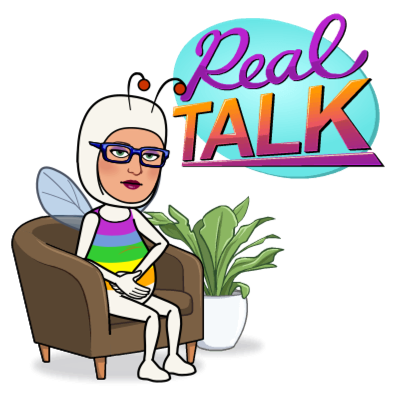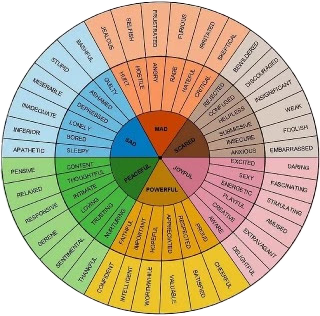Honesty is woven into just about every element of our lives. It is living in a state of truth. Truth to ourselves and others. It is what builds faith, love and trust. It is the thread that builds relationships. Consequently, it is critical to teach and model this virtue to children. BUT maybe we need to also teach our children the dark side of honesty? This blog will attempt to wrestle with the premise that we are constantly coaching our children, “Honesty is the best policy,” or is it?
Pondering this topic I found myself becoming overwhelmed with tail chasing thoughts. When I googled virtues, honesty was not at the forefront of listed virtues. I was curious as I thought geez, I wonder why? Then I spoke to a couple of close friends. My first friend agreed with the idea that honesty anchors all other virtues. She said, “If you don’t have honesty in a relationship then what do you have? It directs all of one’s thoughts and actions.” Shortly thereafter I spoke to another girlfriend who stated, “Hmmm, people can be honest and be unkind or mean. I think the umbrella virtue is integrity. If you have integrity then you are exercising honesty with compassion and love. MC, honesty can be used in a negative manner.” She is right! On that note take a look at this article.


When it comes to children I believe that teaching them honesty is the best policy. I also think it is important that we discuss honesty as it relates to the following questions:
Will being honest help or hurt?
We have all been in those circumstances when either we or someone else believes that it is our right to be honest in delivering what we understand to be the truth. Our egos and sense of judgment become a primary motivator in delivering this truthful information. Often we lose sight of the other person that is on the receiving end. The feeling of righteousness or our personal vindication overshadows the exchange of information.
Let’s take an example from AA’s 12 Step Program. Step five requires brutal honesty stating: Admitted to God, to ourselves, and to another human being the exact nature of our wrongs. It goes on further with step nine: Made direct amends to such people wherever possible, except when to do so would injure them or others.
The 12 Step Program requires personal accountability through honest and open self-examination as per step five, however, step nine requires participants to evaluate whether their pursuit of honesty and amends will hurt another person. The emphasis is compassionate discernment. The feelings of others are paramount in when and how we share the truth.
Children need to learn temperance in sharing their honest feelings. They need to learn when it is not polite to say they dislike something. They need to ask themselves before they say something: Is what I am going to say kind or will it hurt others’ feelings? In other words, being honest and truthful is linked with empathy.
I used to post and discuss this popular message inspired by the Sufi saying (often attributed to Alan Redpath) in my classroom:
Before you speak:
T.H.I.N.K.
Ask:
- Is it True?
- Is it Honest?
- Is it Inspiring?
- Is it Necessary?
- Is it Kind?
This is a great acronym that needs to go hand in hand when we teach children the importance of honesty. Restraint before firing out our truths is essential in communicating with compassion and building relationships. Just because we have a mouth and voice, we are not entitled to say whatever we want.


Will not disclosing information (which is a form of lack of honesty or transparency), maintain your personal boundaries?
As we develop it is important we learn to set our personal boundaries and respect the boundaries of others. We don’t need to know, nort are we entitled to know, all about everyone or everything. Honouring these boundaries fosters independence and respects the privacy of others. In addition, by respecting boundaries, we are developing trust with others. A parent who is in constant need and insistence on knowing everything in their child’s life might be suggesting that they don’t trust that child in making effective choices.
Another issue in asking or demanding honesty from our children, we might be encouraging them to break someone else’s confidence, which is not theirs to share. Furthermore, we might be asking them to disclose something that is embarrassing or an effective choice. Psychologists coach us rather than grill our kids and emphasize they lied, give them a chance to save face and help them work their way through a problem.
Do we fall into manipulating facts and truth to rationalize our own behaviour, which ultimately becomes less than truthful?
Oh goodness, rationalization! Yes, the excuse that often piggybacks the statement of truth. We all do it, kids and adults alike. It’s the excuse that pads the truth behind behaviour that is usually ineffective. Sometimes it becomes a backward apology. Other times it is a deferral of blame to someone or something else that caused us to do or say something hurtful or destructive. Take a look at this post that I think adeptly addresses rationalization.
Back in 2007, I wrote Mouthy Mia Meets the Wall of Honesty. It is geared to students at the end of grade 2 to grade 5. I have since edited the story. Here you can find a PDF version that you can read to your child. Use it as a basis for discussion on the topic. I have left spaces so that your child can illustrate the story. I invite you to share their drawings and advice on honesty which, with your permission, I will post on the website.


Dig Deeper
- https://mcrolston.com/ask-your-child-how-much-power-do-you-think-words-hold-can-you-give-an-example-of-when-words-are-powerful/
- https://www.onecommunityglobal.org/honesty-and-integrity-lesson-plan/
- https://mcc.gse.harvard.edu/resources-for-families/tips-encouraging-honesty
- https://talkingtreebooks.com/teaching-resources-catalog/definitions/what-is-honesty.html
- https://www.greatschools.org/gk/articles/12-tips-raising-truthful-kids/
- https://www.parents.com/toddlers-preschoolers/discipline/improper-behavior/fantastic-fibs/
- https://www.scholastic.com/parents/family-life/social-emotional-learning/development-milestones/truth-about-lying.html







[…] Do You Wish You Could Wave a Magic Wand and Make Things Go Your Way? Prev Post […]